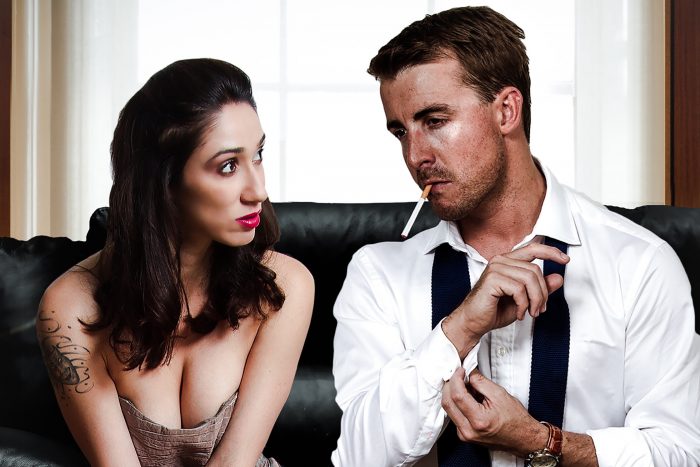“Don’t blame a clown for acting like a clown. Ask yourself why you keep going to the circus.” ~ Unknown
~
I have struggled with toxic relationships for many years. I equated love with suffering. I had a belief that I had to earn love.
And of course this is what I manifested in my personal relationships. Something that I recently learned though—a life changer—was that our wounds attract situations and people to us.
Have you heard of the Law of Attraction? It’s the theory that our thoughts create our realities and that we can essentially create the life we desire through intentional focus. But what many of the blogs and books on the Law of Attraction fail to mention is that our wounds, limiting beliefs, and fears are often calling the shots.
That’s where things get tricky. Because this is all playing out on a subconscious level. For example, if I have a limiting belief that “men can’t be trusted,” then I will probably attract men who are indeed dishonest, or that I distrust. Our outer reality merely reflects our inner world. So if we have the courage to be brutally honest with ourselves and look at our lives, we will be able to follow the signposts toward the parts within us that need to be healed.
If we are in an unhealthy relationship or our partner is not treating us with the love and respect that we deserve, it’s easy to play the role of the victim and list all of the reasons why our partner is to blame. But as Laurie Buchanan says, “What you are not changing you are choosing.”
Psychologically speaking, we tend to replay old childhood dynamics. Let’s say someone grew up in a family where their parents were emotionally unavailable. Over time, that child concludes that if they behave in a certain way, they can receive the love they crave. This child then plays the “perfect” role and gives what the child needs to receive. The child places his or her parents’ needs first and, in many ways, assumes the role of the caregiver. Still, that child does not feel seen and heard. This creates a core wound that also contributes to the formation of certain limiting beliefs that stick around into adulthood.
A common way this wound can be mirrored back to us is through our adult relationships where we replay that very same dynamic. Now in our adult lives, we attract emotionally unavailable partners because it feels familiar. We know how to handle these situations and we continue to crave for our partner to change because we did not manage to change our parents’ behavior.
Essentially, we seek out this feeling of completion. We want someone to finally see us, hear us, and acknowledge all that we do. The irony though, is that we will never get this from the partners we choose because our limiting beliefs of “not being worthy of love,” “not being good enough,” or “being forever alone and not supported” continue to be confirmed through this self-sabotaging cycle.
Even when we do meet someone who has a secure attachment style and is capable of giving us the love and attention that we we desire, things remain complicated. The situation seems unfamiliar. We might become suspicious of their behavior and attribute it to ulterior motives. It becomes difficult for us to receive the very love we crave. Sometimes we might even find the relationship to be boring. And this is completely normal. We have been used to experiencing an activated attachment system—to being emotionally overstimulated. That overstimulation has been the norm, and constantly working to earn the other person’s love is a job we know all too well. We don’t know what to do with anything different.
What to do in this case? We have to be 100 percent honest with ourselves and take accountability for our situation. Look at your relationships as teachers. They are showing you the parts within that require compassionate attention and healing. And don’t be hard on yourself.
Here are four self-coaching prompts to help you reflect on a current or past relationship.
- How does the relationship make me feel? Do I feel safe, supported, heard, and nurtured?
- Am I waiting for the other person to change?
- If my partner does not change (because they probably will not), can I accept them 100 percent as they are now? Does the relationship meet my needs as it is at this moment?
- If no, why am I still in this relationship?
Answering that last one can indeed be difficult, because it is usually linked directly to childhood wounds and limiting beliefs. Often, it is here that working with a coach or psychologist can be useful.
The next step would be to start identifying and reprogramming these limiting beliefs by healing those core wounds that you identify. One way to do this is by releasing trauma from the body, embarking on inner child healing and reparenting, and practicing self-love on a daily basis.
I hope you received some value from this article and that more light has been shed on why you tend to attract or have unhealthy relationships.
Please leave any questions you have in the comment section below and I will personally respond to you!


 Share on bsky
Share on bsky





Read 11 comments and reply